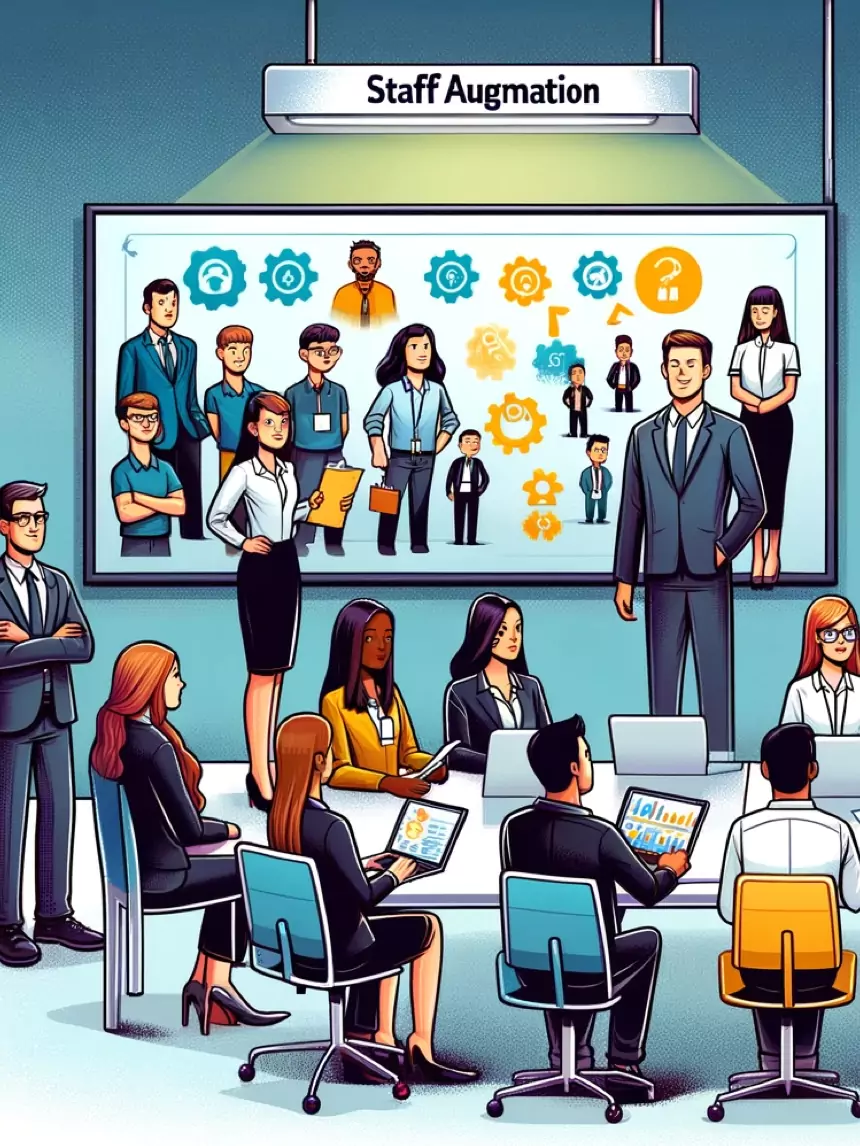Co-Founder Taliferro
Staff Augmentation vs. Consulting
Welcome to a deep dive into the realm of outsourcing, where we explore two prominent options: staff augmentation and consulting. These strategies are both influential in the business landscape, yet they differ significantly in their approach and outcomes. In this comprehensive article, we'll dissect the distinctions between these approaches, delving into their nuances, expertise levels, financial aspects, and ultimate outcomes.
Staff Augmentation
Imagine staff augmentation as a power-up for your existing team. You're already performing admirably, but you require additional hands on deck. These additional resources may come in the form of new hires, temporary staff, or contractors who join your ranks. Staff augmentation focuses on strengthening your team's capacity to manage increased workloads, such as during peak order or project periods.
Consulting
Conversely, consulting is an entirely distinct endeavor. It's akin to enlisting a wise sage for your business. consulting firms specialize in offering advice and expertise. They immerse themselves in your operations, identify your challenges, devise strategic solutions, and assist in their implementation. These consultants are akin to wizards, possessing profound insights into areas such as business strategy, technology, marketing, and beyond.


Differentiating Factors
How do these two approaches compare? Staff augmentation integrates new team members into your existing structure. They function as additional players in your team, enhancing your ability to perform existing tasks. Consulting, on the other hand, revolves around reshaping your approach. Consultants dive deep into your operations, collaborating closely with you to instigate transformative changes within your business.
Expertise Level
One critical distinction lies in the caliber of expertise offered. Staff augmentation primarily provides individuals with the necessary skills for immediate tasks. If you need someone to step in temporarily, staff augmentation is the go-to solution. Consulting, however, brings forth exceptional expertise. These professionals have encountered a myriad of challenges and possess an up-to-date understanding of their respective fields. They aren't merely filling roles; they're revolutionizing the way you operate.
Budget Considerations
From a financial perspective, staff augmentation tends to be more budget-friendly. You're essentially paying for additional hands, not necessarily for profound intellectual contributions. The cost primarily revolves around the number of people required and the duration of their engagement. Consulting, on the other hand, can be relatively more expensive. You're investing in high-level expertise and a thorough examination of your business, which justifies the higher price tag.
Outcomes
The ultimate question is, what do you gain from each approach? Staff augmentation addresses your immediate needs and bolsters your operational capabilities. It's about expanding your workforce's capacity to meet existing demands. Conversely, consulting transcends mere augmentation; it's about transformation. Consultants guide you towards smarter processes, superior strategies, and a clearer vision of your business's trajectory.
What is staff augmentation, and how does it differ from consulting?
Staff augmentation involves bolstering your existing team with additional resources, such as new hires, temporary staff, or contractors. It primarily focuses on expanding your workforce's capacity to manage increased workloads. Consulting, on the other hand, entails seeking expert advice and strategic guidance to transform and improve your business operations.
How do I determine whether my business needs staff augmentation or consulting services?
Assess your current challenges and objectives. If you require immediate assistance with tasks and projects, staff augmentation is the better choice. However, if you're looking for comprehensive guidance, strategy development, and transformative change, consulting services are more suitable.
What type of expertise can I expect from staff augmentation?
Staff augmentation provides individuals with specific skills tailored to your immediate needs. These professionals are adept at performing tasks and projects efficiently.
How does consulting expertise differ from staff augmentation skills?
Consulting experts bring profound knowledge and experience to the table. They are well-versed in industry best practices, possess a broader understanding of your business's holistic needs, and can provide strategic solutions that lead to transformative change.


Is staff augmentation more cost-effective than consulting?
Generally, staff augmentation is more budget-friendly since you're primarily paying for additional hands. The cost is based on the number of people and the duration of their engagement. Consulting can be relatively more expensive due to the high-level expertise and in-depth analysis provided.
What outcomes can I expect from staff augmentation?
Staff augmentation primarily helps you meet immediate needs and efficiently handle existing tasks. It enhances your workforce's capacity to manage increased workloads.
How can consulting benefit my business in the long run?
Consulting goes beyond augmentation. It focuses on transformative change, guiding your business toward smarter processes, superior strategies, and a clearer vision of its future trajectory. The long-term benefits include improved efficiency, competitiveness, and overall business growth.
Can I combine staff augmentation and consulting for my business?
Yes, many businesses choose to combine both approaches to address different needs at various stages of their growth. For instance, you can use staff augmentation to handle short-term projects while leveraging consulting for long-term strategic planning.
Are there specific industries where one approach is more beneficial than the other?
Both staff augmentation and consulting can be valuable in various industries. The choice depends on the specific challenges and objectives your business faces, rather than the industry itself.
How can I determine which approach is best suited to my business's current situation?
To make an informed decision, assess your immediate needs, long-term goals, and budget constraints. Consider consulting when seeking transformative change and strategic guidance, and opt for staff augmentation when you require additional resources to meet existing demands efficiently.
Conclusion
The decision between staff augmentation and consulting hinges on your business's current requirements. Do you need additional hands to manage existing tasks efficiently, or are you seeking a complete overhaul of your operational landscape? Staff augmentation and consulting are both valuable strategies, akin to comparing apples and oranges. The choice should align with your specific needs, ensuring that your business continues to thrive and evolve.
Tyrone Showers
